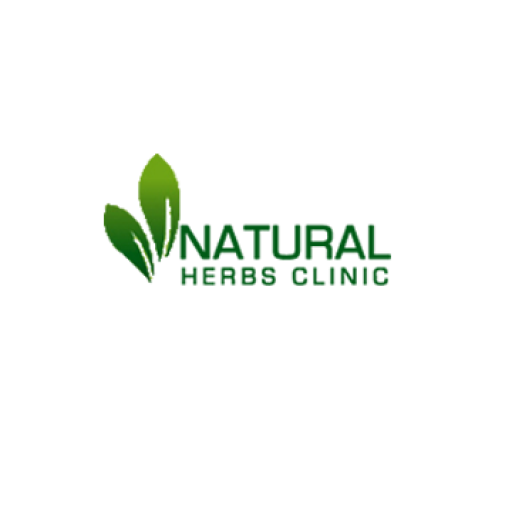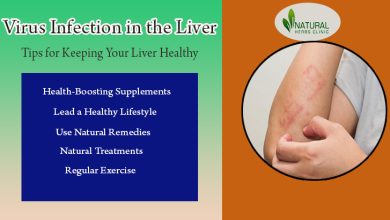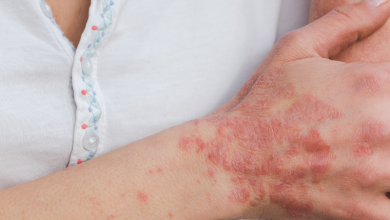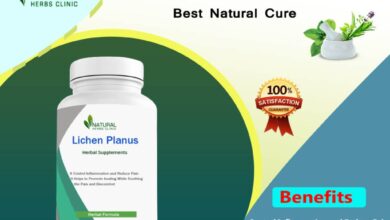Rash in Mucous Membranes Prevention Strategies for Avoiding
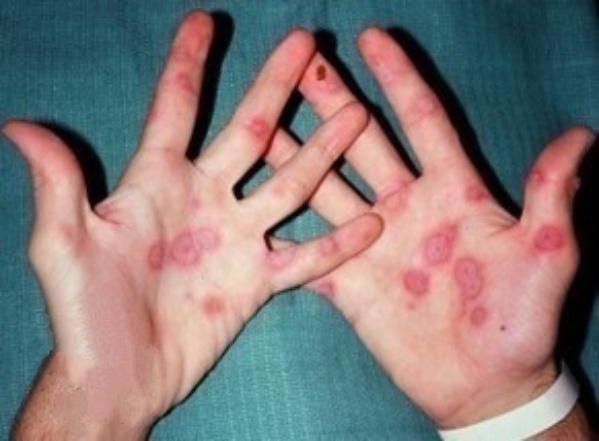
Learn the best strategies to help you prevent Rash in Mucous Membranes. Find out what steps you can take to avoid this condition.
Overview of Rash in Mucous Membranes and Lichen Planus
Rash in mucous membranes is a fairly common medical condition characterized by itching, burning, and/or blistering. It can form on any area of the body where mucous membranes are exposed to the outside environment, including the mouth, nose, anus, genitals, eyes, and ears. In some cases, the rash may be caused by an underlying medical condition such as Lichen Planus. Lichen Planus is an autoimmune skin condition that causes raised patches of itchy skin or lesions on any part of the body. Its cause is still unknown but some research suggests it could result from damage to the skin from exposure to certain chemicals or other environmental factors. The most common type of Lichen Planus is called “oral lichen planus,” which affects the mucous membranes inside of the mouth. Other forms include cutaneous lichen planus which affects only the skin; vulvovaginal-gingival syndrome which affects both the vulva and gums; and genital lichen sclerosus which affects mainly males. The symptoms associated with Lichen Planus vary depending on where it occurs.
In general, however, its symptoms include raised patches or lesions that are usually accompanied by intense itching and burning sensations. They may also be painful if they become infected or if they come into contact with clothing or other materials. It’s important to recognize these signs so they can be treated promptly— untreated rash in mucous membranes can lead to serious complications such as infections or scarring. Fortunately, there are many prevention strategies that can help reduce your risk of developing rash in mucous membranes or Lichen Planus. The first step is to identify any potential triggers that could be causing your symptoms and take steps to avoid them if possible. For example, if you work in a chemical plant or are exposed to other toxic chemicals regularly it’s important to wear protective gear like gloves and face masks when handling these substances.
Rash in mucous membranes refers to a wide range of skin conditions that can affect the moist areas of the body, such as the inside of your mouth, throat, and nose. These rashes can be caused by a variety of factors, including bacterial and viral infections, contact dermatitis, oral thrush, Lichen Planus, and more.
Bacterial & Viral Infections
Bacterial or viral infections are one of the most common causes of rash in mucous membranes. Bacterial infections can be caused by Staphylococcus species (Staphylococcus aureus) or Streptococcus species (Streptococcus pyogenes). These bacteria produce exotoxins which irritate the skin and cause an itchy rash. Viral infections like herpes simplex virus type 1 (HSV-1) or chickenpox virus can also cause these rashes.
Contact Dermatitis
Contact dermatitis is another common cause of rash in mucous membranes. This occurs when a person has an allergic reaction to something they’ve touched or ingested. Allergens that can trigger contact dermatitis include food items like peanuts or dairy products as well as cosmetics, detergents, household chemicals, fabrics and pollen. This type of rash will often appear as red bumps on the mucosal surfaces.
Oral Thrush
Oral thrush is a fungal infection caused by Candida albicans fungus that affects the moist areas inside your mouth. This infection produces white lesions on your tongue and inner cheeks which may become red and itchy if left untreated. Oral thrush is more common among young children but can occur at any age.
Lichen Planus
Lichen planus is an autoimmune disorder that affects many different parts of the body including the mucous membranes in your mouth and throat. It causes flat topped itchy bumps to appear on the affected area that may appear white or pinkish in color with a lacy pattern around them. Lichen planus natural treatment includes avoiding triggers such as spicy food, tobacco smoke and stress while also utilizing herbal remedies such as turmeric for topical application and licorice for internal use to reduce inflammation caused by this disorder. Conclusion: In conclusion, there are many potential causes for rash in mucous membranes including bacterial infections, viral infections, contact dermatitis, oral thrush and lichen planus. It is important to identify what is causing your rash so you can get proper treatment for it as soon as possible before it becomes more severe or spreads further into your body. Additionally practicing preventive measures such as avoiding known triggers for contact dermatitis or lichen planus while utilizing natural remedies can help reduce inflammation symptoms associated with these conditions
Prevention Strategies for Avoiding Rash in Mucous Membranes
Rash in mucous membranes is a condition that can cause a great deal of discomfort and distress for sufferers. In some cases, the rash may be caused by Lichen Planus, which is an autoimmune disorder characterized by skin lesions. Although there is no cure for Lichen Planus, it can be managed with natural treatments such as topical creams, dietary changes, and stress relief techniques. In addition to natural treatments, there are also several prevention strategies available to reduce the risk of developing rash in mucous membranes. The following tips can help you avoid suffering from this condition:
- Avoid Trigger Foods: Certain foods have been known to aggravate the rash associated with Lichen Planus. Avoiding trigger foods such as dairy products, citrus fruits, and tomatoes may help reduce your risk of developing a rash.
- Stay Hydrated: Drinking plenty of water helps keep your body well-hydrated and prevents dehydration that could aggravate existing rashes or increase your risk of developing one.
- Take Vitamin Supplements: Vitamins A, B-complex, C, D and E help replenish essential nutrients needed to maintain healthy skin and mucous membranes. Taking Herbal Supplements and Vitamin regularly may help reduce the risk of developing Lichen Planus.
- Reduce Stress Levels: Stress can worsen existing skin conditions or increase the risk of developing new ones. Incorporating activities such as meditation, yoga or regular exercise into your daily routine can help reduce stress levels significantly.
These prevention strategies are some simple steps that can help reduce the risk of developing rash in mucous membranes or aggravating existing rashes due to Lichen Planus. However, it is important to speak with your doctor if you experience any symptoms related to Lichen Planus or other skin conditions so you can receive proper treatment as soon as possible. Natural treatments such as topical creams or dietary changes combined with these prevention strategies will provide the best results when it comes to managing Lichen Planus and avoiding rash in mucous membranes.
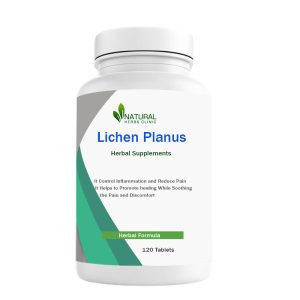
Natural Treatment Options for Lichen Planus
Lichen planus is a common yet chronic skin condition that causes an itchy rash on the mucous membranes. It can appear in many parts of the body, such as the mouth, scalp, genitalia, and nails. Though there is no known cure for lichen planus, there are natural treatments available to help reduce the symptoms and improve overall skin health. Our goal here is to discuss those Lichen Planus Natural Treatment options to help with preventing further rashes in mucous membranes caused by Lichen Planus. The first step to managing any skin conditions is to make sure you are keeping your skin hydrated and nourished. This means using gentle soaps and moisturizers that will not dry out or irritate your skin. You can also try incorporating natural oils into your daily routine such as olive oil, coconut oil, jojoba oil, or almond oil. These oils are known for their hydrating benefits and can help soothe dryness and irritation from lichen planus rashes. Another important aspect of naturally treating lichen planus is avoiding harsh chemicals or perfumes which can aggravate the condition and worsen symptoms. In addition, it’s important that you limit your exposure to sunlight as UV rays from the sun can aggravate lichen planus rashes.
If you must go outside during peak hours of sunshine, be sure to cover up with a hat and clothing that offers full-body coverage. Diet also plays an important role when managing lichen planus naturally as certain foods may trigger flare-ups of this condition. To prevent further irritation of mucous membranes caused by Lichen Planus it’s best to eliminate processed foods from your diet and focus on consuming nutrient-rich foods such as fruits, vegetables, nuts seeds healthy fats like avocados or olive oil, whole grains like quinoa or brown rice, lean proteins like fish or beans & legumes . Eating a balanced diet filled with vitamins & minerals will also aid in reducing inflammation associated with Lichen Planus natural treatment options.. Herbal supplements may also aid in reducing inflammation associated with lichen planus. Some popular herbs used include ginger root extract, turmeric extract , green tea extract , oregano essential oil ,chickweed extract , fenugreek seed extract among others. It’s best to consult a health and fitness care professional before adding any herbal supplements into your daily routine as some herbs may interact with medications you’re already taking or cause adverse reactions if taken alongside them .
Finally, topical creams such as aloe vera gel may help reduce itching and discomfort associated with lichen planus rashes on mucous membranes while vitamin C serum applied topically helps reduce inflammation & redness . Proper application techniques should be utilized when using topicals over affected areas . In conclusion , though there is no known cure for Lichen Planus , there are several natural treatments that people can use in order to manage symptoms associated with this condition . By staying hydrated , avoiding certain environmental stressors & applying topical products correctly , one can significantly reduce their risk of developing further rashes or flare ups due to Lichen Planus . Eating a balanced diet high in vitamins & minerals while supplementing with natural remedies helps maintain skin health while providing relief from irritating symptoms . Natural treatment options for Lichen Planus have been found beneficial when used according to recommended guidelines & monitored closely under medical supervision .
